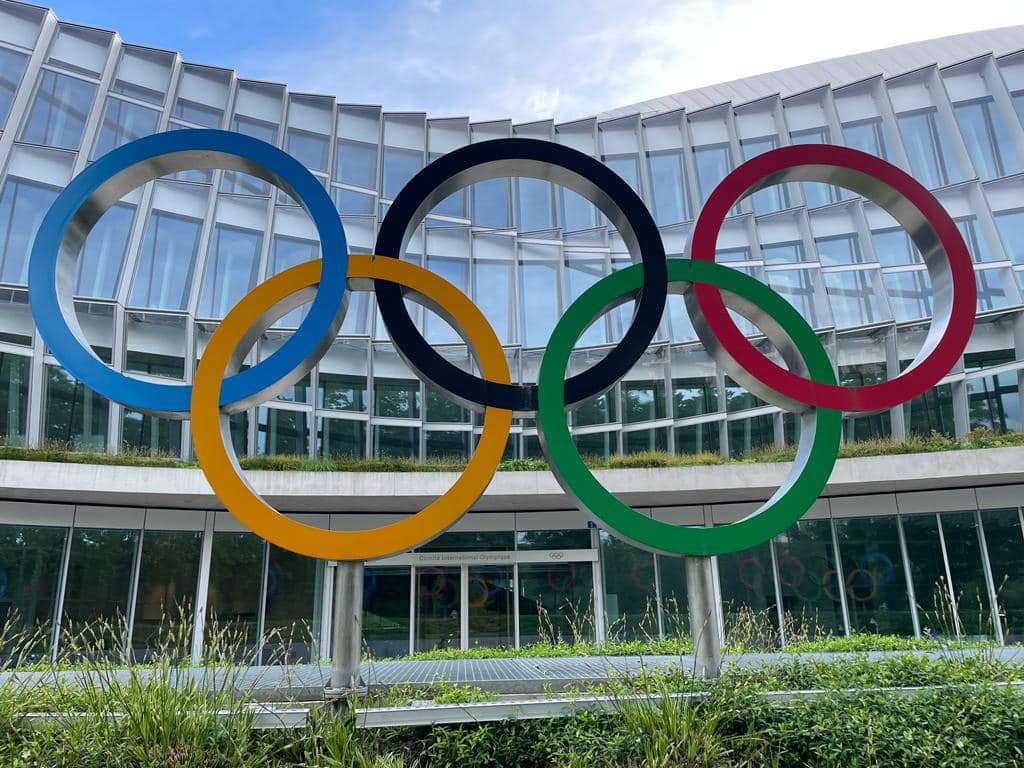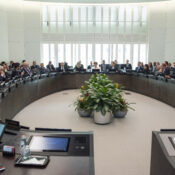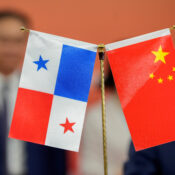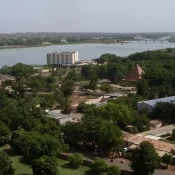
What is influencing the IOC presidency race? An Examination of Candidate Manifestos
The manifestos of the seven contenders to succeed Thomas Bach as president in March have been released by the International Olympic Committee (IOC).
A list of some of the seven contenders’ main manifesto points is provided below:
British, Sebastian Coe, 68
Qualifications: double Olympic 1500-meter gold winner, former British Parliament member, IOC member since 2020, President of World Athletics, organizer and deliverer of the 2012 London Olympics.
Important passages from the presentation and manifesto:
- The IOC is not a dysfunctional organization, but it needs to change and might be far better. A small number of people hold far too much power. The fences must be pulled down because the decision-making procedures are unbalanced. The members don’t get enough use. Talent is abundant, and I want to tap into the vast wealth of information and expertise that is available.
- I am aware that the members are eager for change.
- My entire life, which has always been devoted to sports, has been essentially training me for this role. I’m not sure if my strategy will upset the existing senior officials, but I don’t care. Improving the organization is all that interests me.
- Sport is the most effective social worker in all of our communities. Since this is our main business, we must do more to interact with governments and understand what this entails.
- In athletics, I feel really at ease with the protection of the female division. You end up with what happened in Paris (in boxing) if you don’t have clear policies.
- It’s a job that greatly excites me and that I know I can do. I’ve had experience changing the athletics industry.
- It’s thrilling, and I’m prepared for the honor and privilege of my life.
Jordanian Prince Feisal Al Hussein, age 61
Qualifications: Olympic Council of Asia Executive Board Member, Jordan Olympic Committee President, Jordan Motorsport Chairman, and Association of National Olympic Committees Executive Council Member
IOC: Participant since 2010; Executive Board member since 2019 * The location of our Games also requires a consideration of their schedule. In order for more host cities to submit bids for the Olympic Games, I think the athletic calendar needs to be reviewed in light of our changing environment.
- We also need to consider how to optimize the Olympic Games revenue split for NOCs and IFs.
- Esports: It’s obvious that we need to work together and avoid conflict with this sport. With their emphasis on urban sports, I think the Olympic Esports Games and Olympic Qualifier Series are a positive step. Throughout the whole quadrennial, I plan to engage the young of the world on a daily basis, not just during the Olympic Games.
- AI: When used properly, AI may level the playing field and improve sports enjoyment. We need to make sure this technology is available to everyone as we continue to investigate the IOC’s Olympic AI Agenda.
- I’ve learned from my time in military command and my work with the National Policy Council that listening, establishing trust, and utilizing a team’s collective wisdom are more effective ways to lead than forcing views.
Spanish-speaking Juan Antonio Samaranch Jr., 65
Qualifications: Son of former IOC president Juan Antonio Samaranch, member of the Spanish National Olympic Committee since 1989, first vice-president of the International Modern Pentathlon Union since 1996, CEO and founding partner of GBS Finance S.A., as well as a member of the Executive Board from 2012 to 2016 and since 2019. Vice-President of the IOC since 2022 and from 2016 to 2020.
- IOC members serve as the Olympic Movement’s trustees and guardians, while athletes are its lifeblood. It is evident from our discussions that Members require a more powerful voice in determining our destiny. In order to make sure that we are not arbitrarily losing the advantages of experience and expertise, we also need to review the age limit and raise the retirement age to 75.
- To assess all IOC programs for alignment with the mission, impact, and return on investment, a thorough operational review should be commissioned with an experienced external resource, Olympic experts, and a chosen group of IOC members. The review should focus on four main areas: modernize technology, streamline processes, optimize resources, and measure performance.
- Given our shifting climate and dedication to universality, members should choose the host city and be adaptable and willing to change our schedule to make hosting the Games more accessible for all areas.
- Examine the growing geographic dispersion of the Games’ locations. Although there are good reasons to strategically distribute them, legacy concerns and practical realities—not politics—should guide such choices.
- Women in sports should be protected. Adopting a policy to retain clear boundaries between men’s and women’s categories is part of the IOC’s core obligation to protect women’s sport. The IOC needs to take the lead on this matter by establishing precise rules for competition.
- Keep interacting with world leaders to highlight and support the significance of preserving the political independence of the Olympic Movement.
- Review our media agreements right away with our partners to make sure we are optimizing the Olympic brand’s reach and promotional potential.
- Drawing on my background in banking, I think there is a chance to create a $1 billion investment fund where investors supply the required funding and the IOC offers its specialized knowledge and views. The IOC would be able to take part financially with little risk thanks to this cooperation framework.
Zimbabwean Kirsty Coventry, 41
Chairperson of the Athlete Commission (2018–2021) and IOC member since 2013. was reappointed as the Minister of Sports, Art, and Recreation of Zimbabwe in 2023. Five Olympics and seven swimming medals.
- My goal is to promote empowerment, increase participation, and make sure we stay relevant by adhering to the Ubuntu principle: “I am because we are.” This idea emphasizes the Olympic community’s collective strength and our need to support one another.
- Making use of sport’s force. Since athletes are more than just competitors, we must continue to put their mental and physical health first and enhance their overall wellbeing throughout and after their sports careers.
- Make use of our International Federations’ experience to increase the impact of each event.
- By promoting sustainable methods in operations, logistics, and infrastructure, the Olympic Games must provide an example for environmental stewardship.
- Corruption, doping, and unethical behavior are not tolerated. In today’s more divided world, I think our Olympic Movement has a crucial role to play. We have the chance to show the real power of sport: the ability to bounce back from setbacks, the fortitude to persevere, and the significance of empathy and deference.
Swedish-British Johan Eliasch, 62
Former UK Prime Minister’s Special Representative and current president of the International Ski and Snowboard Federation (FIS). IOC: Since 2024, a member.
- We need to make sure our organization is dynamic and businesslike in a world where there are great expectations and the IOC is scrutinized closely. The foundations of successful organizations that have maintained their success over time include a strong emphasis on governance, clearly defined roles of accountability, responsibility, and authority across the organization, strategic thinking with well-defined goals, a collaborative culture, innovation and creativity, and succession planning. The same must apply to the IOC.
- We need to stay ahead of the commercial curve and get more for less in a world where technology are changing quickly. We need to balance sponsorship objectives, the exploitation of broadcast rights, digital tactics, and new commercialization models in the upcoming years.
- We must come together around our principles in a world split by politics, poverty, and inequality. We must protect athletes from being used as political weapons and preserve the valuable ideal of political neutrality.
- When it comes to gender and eligibility, the IOC must take the lead and establish the foundation for global federations. To guarantee a fair and secure environment for all athletes, especially women, the IOC should take the initiative in creating a straightforward policy.
- Would the advantages of Olympic athletes receiving prize money exceed the disadvantages? Our movement is about honoring human strength and perseverance; athletes who spend years giving their best effort and earning rewards that go far beyond financial gain, such as respect from their peers, national pride, and personal glory. We need to consider whether offering prizes is in line with this spirit. And is it required?
- How can we involve younger generations more than just once every several years and make the Games more appealing to them? Between the Games, the IOC needs to look into ways to raise Olympic awareness.
Although e-sports may appear to be very different from Olympic sports in many aspects, its rapidly increasing popularity provides a glimpse of an exciting future where Olympic ideals are used to appeal to a wider and younger audience.
Frenchman David Lappartient, age 51
President of the French National Olympic and Sports Committee and President of Union Cycliste Internationale (UCI). Since 2022, IOC member.
- Commissions: To increase their effectiveness, I will suggest somewhat reducing the number of commissions and the number of members in each commission.
- Gender parity: 41% of our members are women. I suggest aiming for parity among Members by 2036 at the latest.
- In order to adopt a more global perspective, I would ask members if they would consent to a small increase in the number of IOC members, which would come from the Athletes Commission and guarantee that each continent is represented.
- Doping: The WADA’s research budget is insufficient, therefore we need to keep coming up with new ways to combat doping and gather the required resources.
- In the future, I hope we can host the Olympic Games in Africa as part of our goal to be present in every area of the world.
- I think it would also be beneficial to clarify the requirements for incorporating new sports disciplines already on the Olympic program and for adding new sports to the Olympic Games schedule (universality, quotas, Olympic revenue, etc.).
- Esports: We must support the Olympic Esports Games and, if at all feasible, include International Federations. In addition, national Olympic Committees will be crucial in managing the teams who are representing their countries.
- We must take care to lessen the negative effects of athletic events on biodiversity and refrain from constructing infrastructure in delicate natural regions.
- In order to conserve as much money as possible for the execution of our tasks and significant payments to Olympic Movement members, I also think it’s critical to control IOC spending.
- At the IOC Session, I will forward a proposal to call an Olympic Congress in compliance with Rule 4 in order to enhance our agenda by engaging in discussion with all of the sport’s stakeholders. The 14th Olympic Congress would take place. Copenhagen hosted the most recent one in 2009.
Japanese person Morinari Watanabe, age 65
President of the International Gymnastics Federation and an IOC member since 2018.
- Hold the Olympic Games simultaneously in five cities across the five continents. The IOC and IFs have the option of selecting a city that will provide athletes a less taxing environment. Bringing the world together: The Games will be televised and streamed around-the-clock, bringing people from all five continents together. There are 50 sports overall, with 10 in each host city. The usage of more temporary and existing facilities will be possible if there are fewer (1/3) IFs involved for each host city.
In order to organize the Winter Olympics in several host cities and nations/regions, talks will also be held to limit the number of sports in each host city.
- The reach of Worldwide Partners will grow, and the broadcast and streaming time of Rightsholders will rise, as the Olympic Games spread to five continents and are shown and streamed around the clock. I want to talk about how the existing Worldwide Partners and Rightsholders can take advantage of the increasing value. To boost sales, the IOC and the Partners/Rightsholders will create a “win-win” marketing strategy.
- A system will be developed to enable IOC members to actively contribute to the world by utilizing their individual occupations and skill sets, given that they are specialists in many sectors. “Sport and Politics” can be promoted by politicians, and “Sport and Entertainment” can be promoted by professionals in the entertainment sector.
- The IOC President’s term of office has been extended from eight to a maximum of twelve years.
- I have traveled to more than 160 countries in my capacity as President of the International Gymnastics Federation. I interact with officials, coaches, and athletes from many nations to get their perspectives. I think it’s my responsibility to hear everyone out and fulfill their aspirations.
All Categories
Recent Posts
Tags
+13162306000
zoneyetu@yahoo.com



